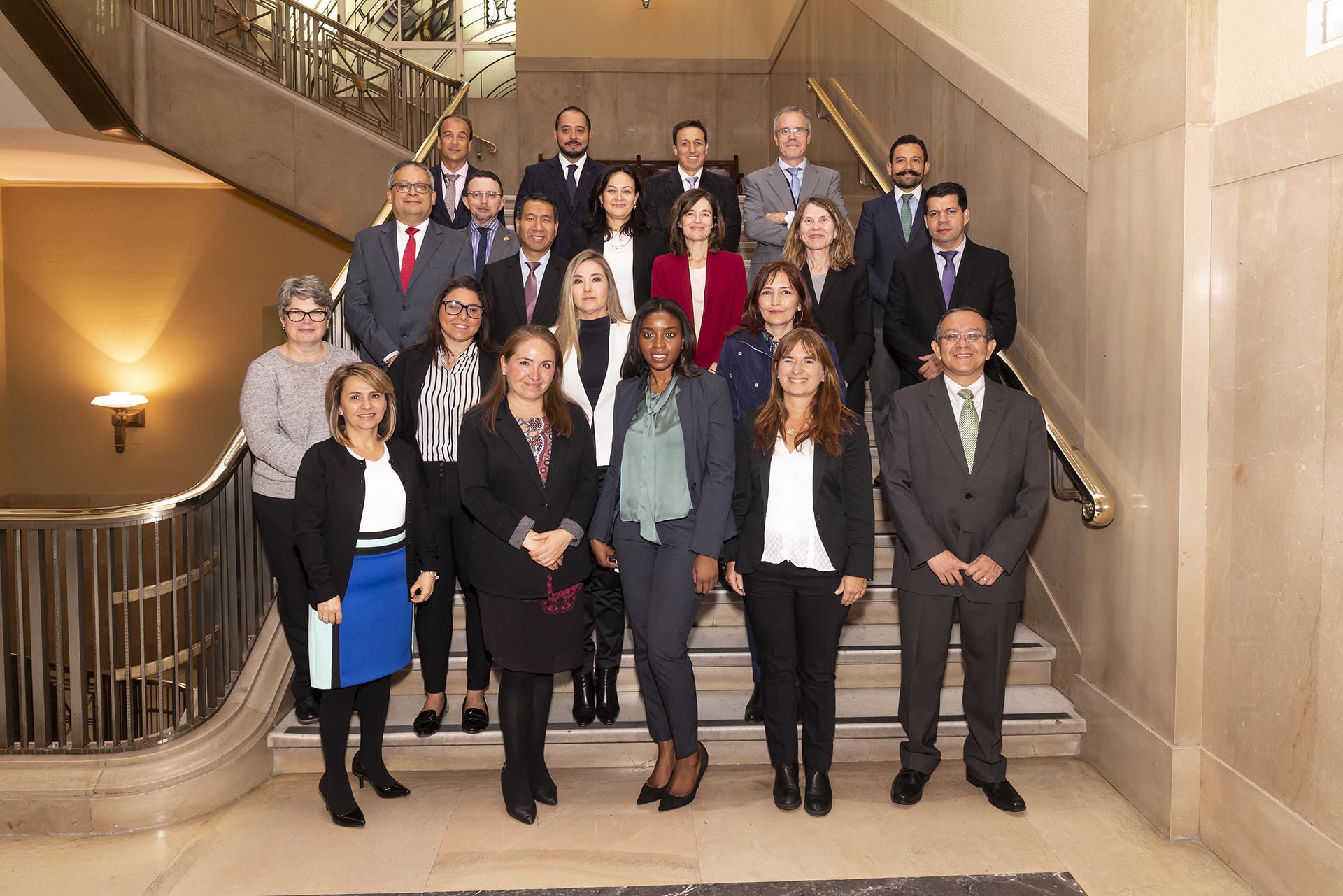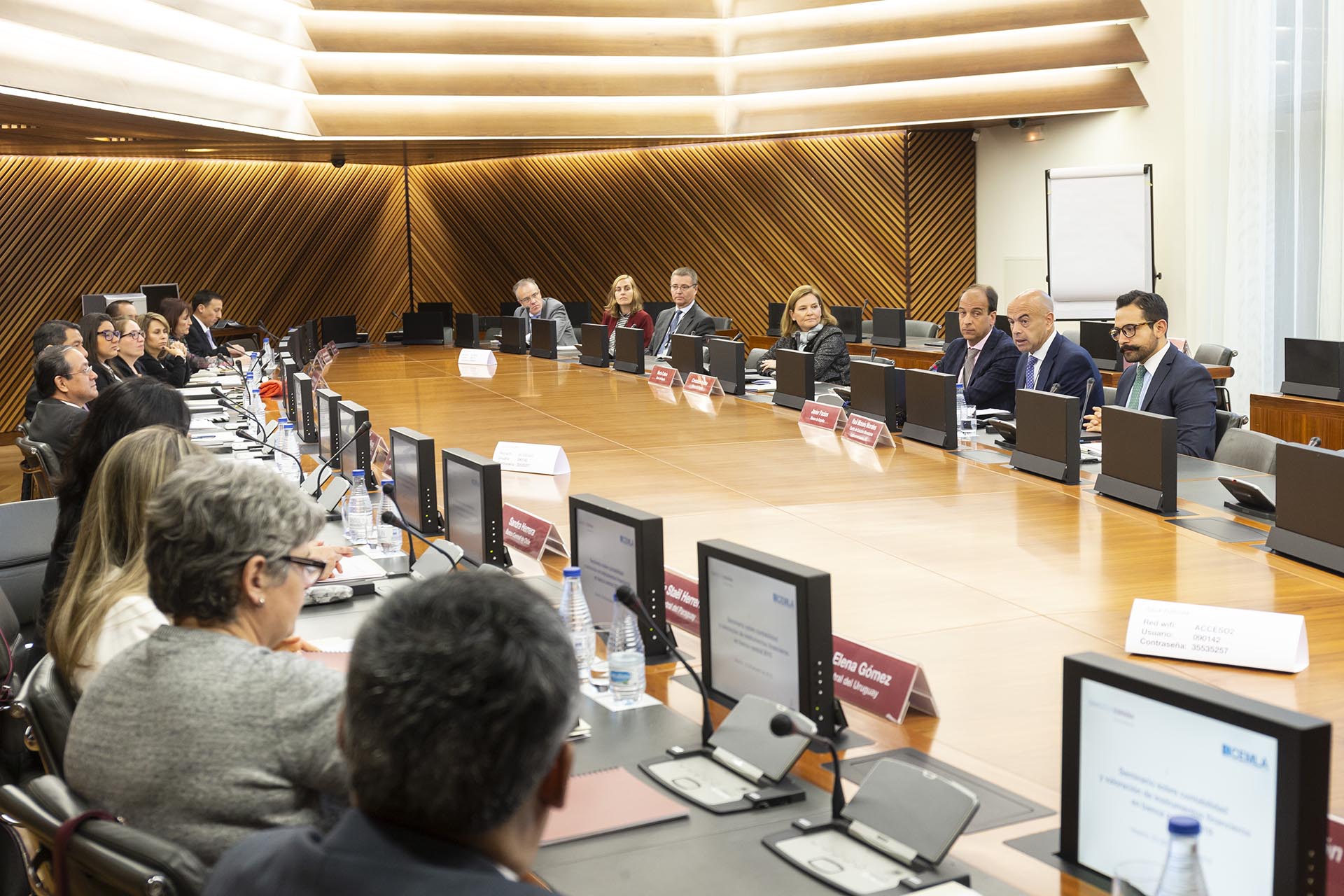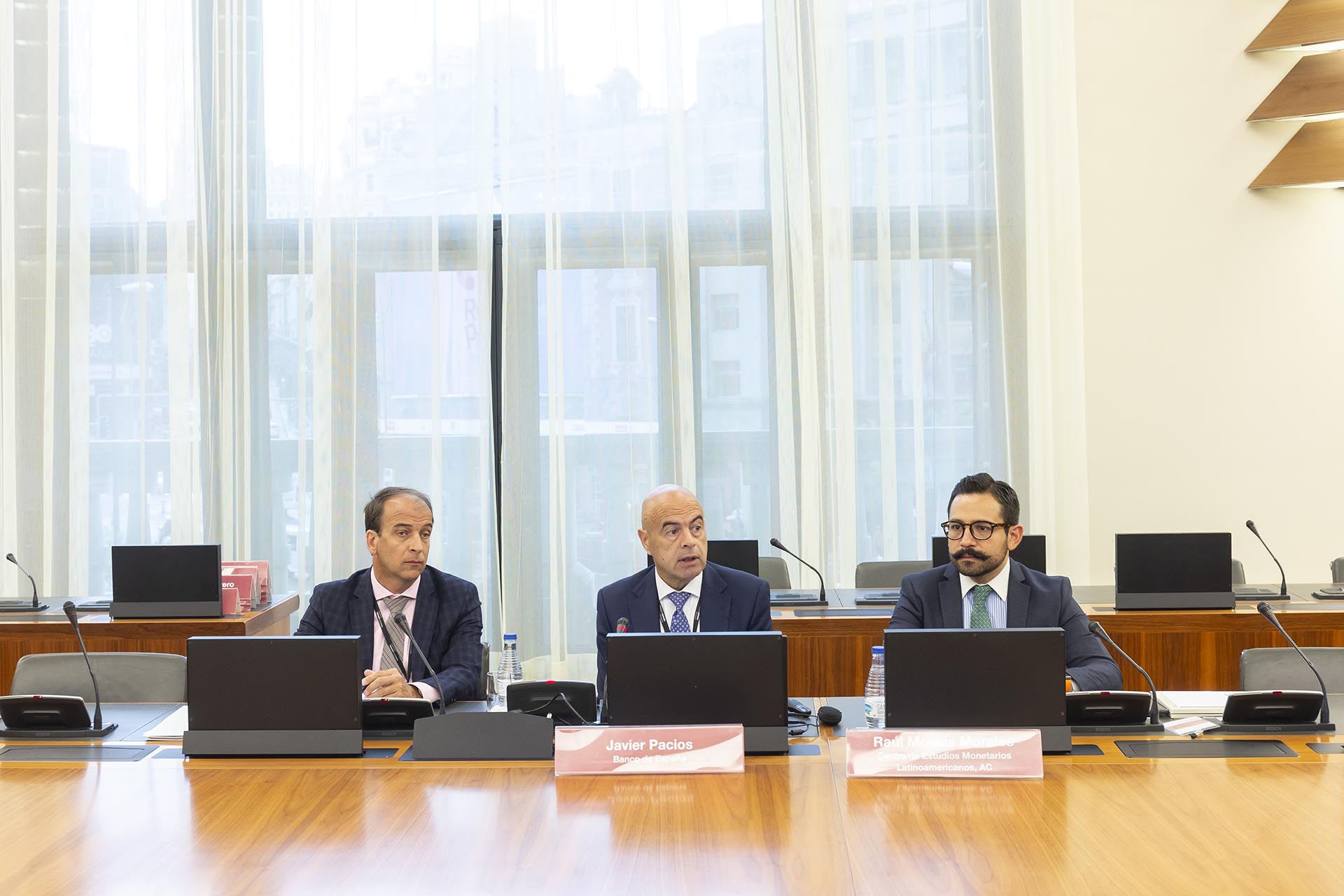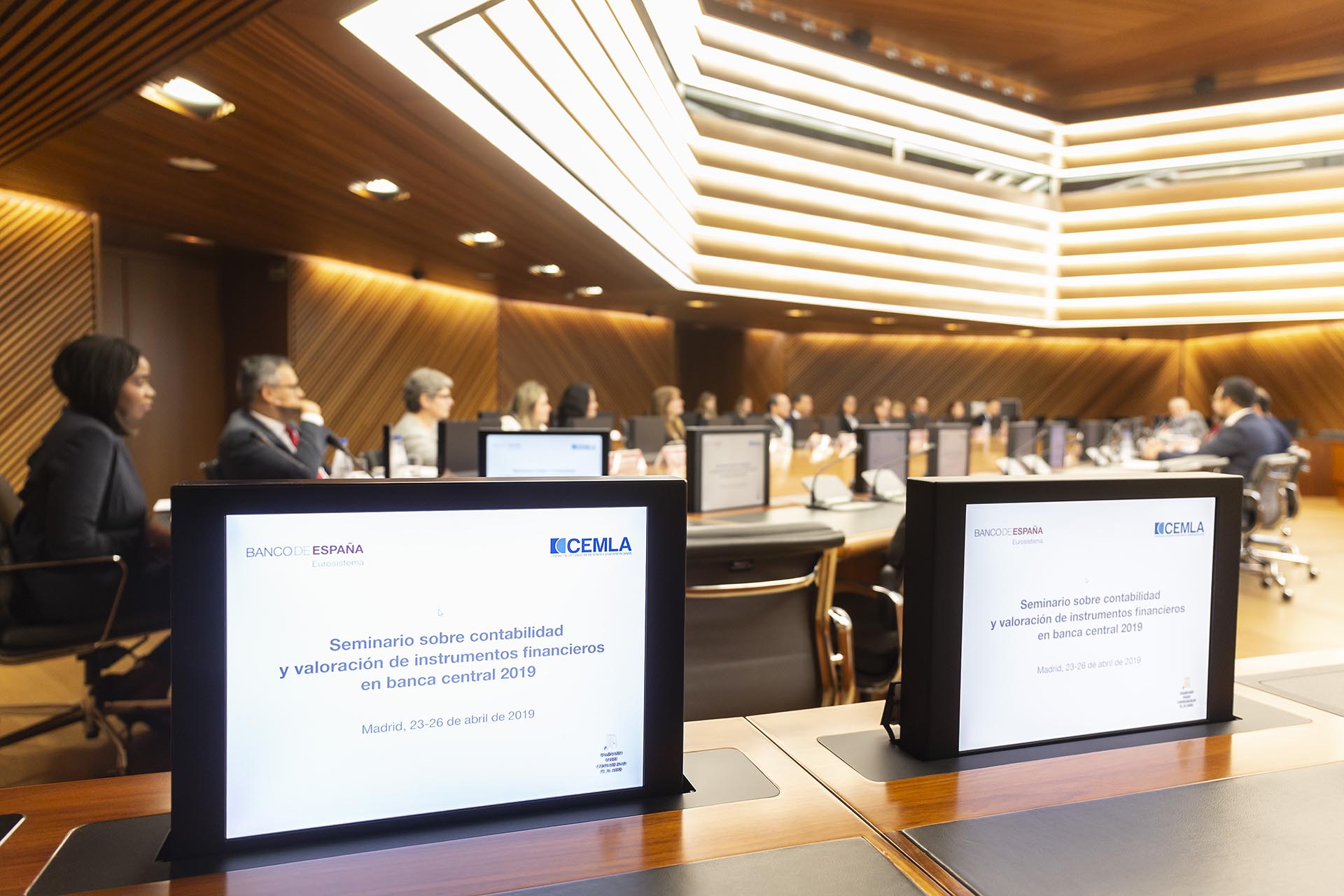Seminar on Accounting and Valuation of Central Bank Financial Instruments, 2019
Madrid, Spain, April 23 - 26, 2019
The 2019 edition of the Seminar on Accounting and Valuation of Central Bank Financial Instruments, 2019 was held in Madrid, Spain, from April 23 to 26, 2019. It was attended by representatives from 14 Latin American and Caribbean central banks.
The Seminar was aimed at to strengthen the capacities for the analysis, registration and valuation of operations carried out with financial instruments in central banks. Topics that were covered during the Seminar, included: i) applicable regulatory standards; ii) valuation and the accounting treatment of the different categories of financial assets and liabilities under the International Financial Reporting Standards (IFRS), as well as in the standards of the European System of Central Banks (ESCB); iii) monetary operations from the accounting perspective of central bank balance sheet; and, iv) effects of accounting standards on its financial strength.
The Seminar served as forum for the participants to deep dive in the similarities and differences of different accounting international standards, mainly between the Financial Accounting Standards Board (FASB) and the International Accounting Standards Board (IASB) approaches, as well as the case of the accounting regulatory framework of the European Central Bank that is reflected in the Guidance ECB/2016/34.
In this context, it was noted that the approaches taken by the IASB, FASB and the ECB are important references to strengthen the accounting frameworks in Latin American and Caribbean central banks.
Significant time was devoted to better understand key aspects of financial instruments valuation under a context of major regulatory reform, that has yielded important novelties for accounting. It was highlighted that in the case of central banks accounting framework, it is relevant to strike a balance between harmonization and focus of the policy and criteria that governs the accounting of variables such as instruments comprising the foreign reserves, collateral and market operations. Moreover, it was underlined that central banks have a particular function in the economy and, given that, it is not optimal to adopt complex standards to achieve transparency in its accounting framework.
Finally, the Seminar also provided room for the attendees to exchange recent experience on how international accounting standards are being adopted or used as guidance in central banks of the region. Cases of full and partial IFRS adoption were presented and, overall, it was concluded that accounting is a strategic pillar for a central bank to remain reliable and accountable.
Opening and introduction to the Seminar
Javier Pacios, Auditor General, Banco de España
Raúl Morales Reséndiz, Manager of Financial Markets and Infrastructures, CEMLA
Christiane Iriache, International Cooperation, Banco de España
Applicable regulatory sources
Julia Blanco, Specialists, Financial Statements Unit and ESCB Operations, Banco de España ![]()
Different categories of financial assets and liabilities. Recognition and valuation of financial instruments
José Ignacio Martínez, Responsible, Financial Statements Unit and ESCB Operations, Banco de España ![]()
Fair value measurement
Inmaculada García, Specialist, Financial Statements Unit and ESCB Operations, Banco de España ![]()
Accounting rules applied by participant countries
Beatriz López, Head, Accounting and Financial Statements Division, Banco de España
Luis Fernández de Heredia, Head, Operations Control Division, Banco de España
Operations with fixed income securities
José Antonio Sernández, Technician, Financial Statements Unit and ESBC Operations, Banco de España ![]()
Temporary operations with values
Leticia Martín, Specialist, Assets Management Control and Guarantee Analysis Unit, Banco de España ![]()
Derivative financial instruments
Esteban Montis, Specialist, Assets Management Control and Guarantee Analysis Unit, Banco de España ![]()
Álvaro Sendín, Technician, Assest Management Control and Guarantee Analysis Unit, Banco de España
Treatment of the foreign currency positions, gold and operations with the IMF
Fixed-income specific instruments
Monetary policy operations
Financial instruments. Risks
Luis Fernández de Heredia, Head, Operations Control Division, Banco de España ![]()
Generic and specific provision
Beatriz López, Head, Accounting and Financial Statements Division, Banco de España ![]()
Introduction to the Banco de España accounting system
Isabel Herrero, Technician, Accounting Management Unit, Banco de España ![]()
Ana Gómez, Technician, Assets Management Control and Guarantee Analysis Unit, Banco de España
The balance sheet as a reflect of a central bank strategy
Javier Pacios, Auditor General, Banco de España
Summary and general assessment of the Seminar
Javier Pacios, Auditor General, Banco de España ![]()
Raúl Morales Reséndiz, Manager of Financial Markets and Infrastructures, CEMLA
For over several years, CEMLA and Banco de España organize this Seminar in response to a request of the CEMLA Accounting Committee, to have relevant training activities to equip the central banks' accounting staff with tools and knowledge of how analysis, registration and valuation of financial instruments in central banks should be carried out, using as references the international best practices and standards.
Presently, the Seminar is conducted every two year and it is jointly organized with the Comptroller's office of the Banco de España.






